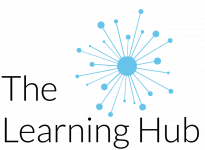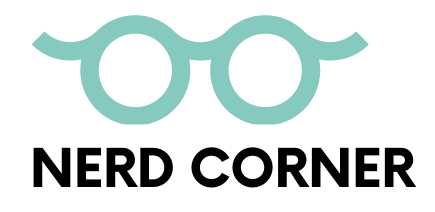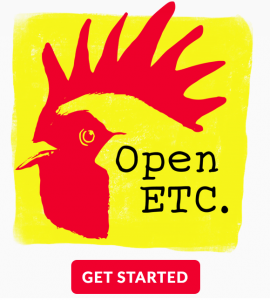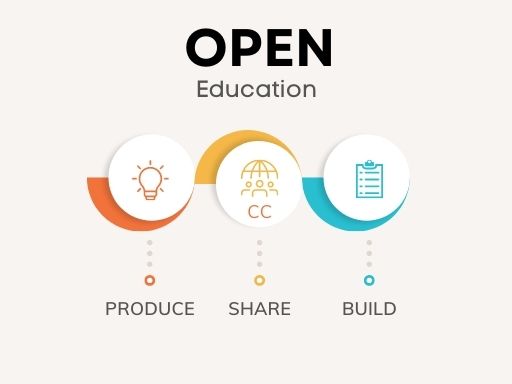
Your source for all things teaching and learning at the JIBC.
March 2022 Vol.2 Issue 4
Image BCcampus. Attribution-NonCommercial 2.0 Generic (CC BY-NC 2.0)
Open Education
Written by Dave Smulders, Program Manager, Faculty Development
First of all, a huge thank you to all who have contributed to this issue. We truly couldn’t have done it without you!
This week (March 7-11) is Open Education week, so it only makes sense that we devote some of our attention to Open Ed in all its various manifestations including Open Education Resources, Open Textbooks, Open Pedagogy, Open Access, Open Assessments, Open Research, and all the rest of the Open gang.
Our content for this Learning Hub offers a mix of reflection, analysis and direction on Open Education. We start small with some foundational information and try to go big and beyond, all in the service of making us more aware and attuned to the possibilities before us as educators. With this issue, we want you to have a better understanding what Open means in educational contexts, but we also want to encourage you to think about why this is a relevant topic.
The concepts of Open Learning and Open Education have been around for many years, but it seems Openness captures the attention of successive generations of educators as we grapple with different challenges. Currently, as we try to emerge from the restrictions of the pandemic, we are already in the process of reflecting on some of the possibilities and limitations of pivoting to online environments. This has caused us to re-evaluate our teaching practices, what we consider to be important, how we wish to best spend our time with students, what we might not mind leaving behind, and what we absolutely cannot give up. Students, too, have had to deal with an educational culture where “homework” advice is available online at a cost, where online exam proctoring involves immense effort of logistics and technology and sends mixed messages about trust in education, where being distant from each other and from their instructors tests the learning experience. Openness historically has contributed to solutions for all these challenges.
We should consider Open Education an ongoing series of innovations in teaching and learning. And therefore, it is worthy of our attention. Fortunately, there is a lot of good information out there to help us get started, and this Learning Hub is about as good a place as any to start. Not all our contributions here are strictly related to Open Education, so don’t skip over anything! If your interests intersect with teaching, learning, curriculum development, educational research and great music, then you’ve arrived. Take your time as you go through these resources. And if something sparks your imagination, let us know.
Land Acknowledgement
We respectfully acknowledge the Justice Institute of British Columbia’s New Westminster campus is located on the unceded traditional territories of the Qiqéyt (Qayqayt), xʷməθkʷəy̓əm (Musqueam) and Central Coast Salish Peoples.
Upcoming Events
CTLI Virtual Drop-In!
MARCH-MAY 2022
- Thurs 12:00 PM - 1:00 PM
Click this Collaborate link to join the Virtual Drop-In session every Thursday.
- MARCH 24 12:00 PM - 1:00 PM
Open Education: An Introduction
Register here.
MAY 2022
OTESSA 2022 Conference
- May 16 &19: Online Conference Online, Open Education, Ed Tech, etc.
Register here.
Goodies from CTLI
Official Hub Playlist
The soundtrack “All Things Open”. Brought to you by the musical stylings of CTLI. Enjoy!
Voices from JIBC
This month we asked our JIBC community for their thoughts about Open Education. Watch, read and hear what they had to say.


GREG KEENAN & DAVE SMULDERS
Describes Open Education efforts in the Law Enforcement Studies Diploma program



MELANIE MEYERS & KRISTA LAMBERT
Tell us about their adventures over the past 2.5 with BCcampus.



ALEXANDRA NGUYEN & LIEF GARRETT
Alexandra and Lief talk about Open Education Resources from a student perspective.
Research at JIBC
An important aspect of our collective efforts to be better educators involves scholarship. Here are two good examples of JIBC-sponsored research.

FLORENCE DADDEY
Shares her findings on Open Ed research at JIBC.
Research: The value of “free”: improving students experience through open education resources.

HEATHER SIMPSON
Encourages us to expand our ways of thinking about teaching, learning, and research.
Research: “Forming Strong Cultural Identities in an Intersecting Space of Indigeneity and Autism.”
Health & Wealth

Dee Guraya
On embracing opportunities for wellness throughout the year...
We are back, new year, new me is what we often hear; however, I’m choosing to celebrate and move forward with ‘new day and new opportunities.’ This is me trying to set intent behind embracing opportunities for wellness throughout the year…
JIBC Library

JIBC Library has a LibGuide on OER
Please note: You may need to sign-in with your JIBC user id and password to access these resources.
The Library has created a new centralized contact for questions about copyright. You can get all your copyright answers at copyright@jibc.ca.


The Open EdTech Collaborative
The OpenETC is a community of educators, technologists, and designers sharing their expertise to foster and support open infrastructure for the BC post-secondary sector.
Resources (What’s Happening)

@ JIBC
Do you need a quick primer on Open Education and all it entails? Who doesn’t? Maybe start here: Open at JIBC
Now that you’ve brushed up on the subject, what’s out there that you can use for your courses at JIBC? Start here: Open Resources from CTLI
A few of us attended an online Hyflex Conference in order to see what other post secondaries are up to in this area. Download a copy at what we discovered: Hyflex Conference Report
So you’re ready to start developing some Open Education Resources? Awesome! But before you do, take a look at our CTLI-authored Open Textbook to help with your course design: A Comprehensive Guide to Applying Universal Design for Learnin
@ elsewhere
Safer Campus Open Course Project: The Safer Campuses for Everyone training is a 75-minute online, self-paced, non-facilitated training developed in an e-learning program called Articulate Rise. Individuals who work in B.C. post-secondary institutions can adapt the course content in the Articulate Rise program and then share the course with learners through a learning management system such as Moodle, Blackboard, Canvas, or D2L.
Safer Campuses for Everyone: Implementation Guide. Sexual Violence Prevention and Response Training for B.C. Post-Secondary Institutions.
How to Design Online Teaching for Engaged Learning by Linda Nilson – View recording of the webinar hosted by Contact North.
Save the Date
THURSDAY, MARCH 24th
Open Education: An Introduction
12:00 NOON PST (60 minutes)
This session will cover the basics of open education and open educational resources (OER), including tangible tips for how to make your courses more open.
Topics include:
- What is open education?
- Benefits of OER for students and faculty
- How to find, adapt, or create OER
Webinar link: Blackboard Collaborate – Open Education: An Introduction
Question? Email dlovsin@jibc.ca
14th and 21st of MARCH, 2022
Decolonizing Research Methods: A Nehiyaw Perspective
11:00 AM MT noon MT (60 minutes)
This two part series will explore historical and current trends in Indigenous research. The first part will examine the history of Indigenous research. Historically, research has been done on Indigenous populations and not with Indigenous populations. For decades, Indigenous scholars have called for better ways of acknowledging Indigenous voices in research. Structures within the research world today are rooted in Eurocentric worldviews that have always placed a higher value on western knowledge rather than Indigenous ways of knowing. The second part will explore trends in current research and how decolonized research is the way forward. Decolonizing approaches to research will be discussed along with research examples specific to Maskwacis.
Cost: FREE
This is part of the Maskwacis Cultural College Microlearning Series and is open to the public. Contact Manisha Khetarpal by email mkhetarpal@mccedu.ca or call toll free: 1- 866-585-3925
Call for contributors:
For our next issue, we are going to look at the course design process. We want to consider best practices for course design, how instructional designers and course developers do their work, and what course design means for instructors. Our aim with this issue is to give you the tools to be able to maximize your input with course design. Well-designed courses are important for positive and productive learning experiences, so there will be something here for everyone.
The Learning Hub is a production of the good folks at the Centre for Teaching, Learning, and Innovation. We welcome ideas and suggestions for edition themes and ideas for articles. Contact us at ctli@jibc.ca.




